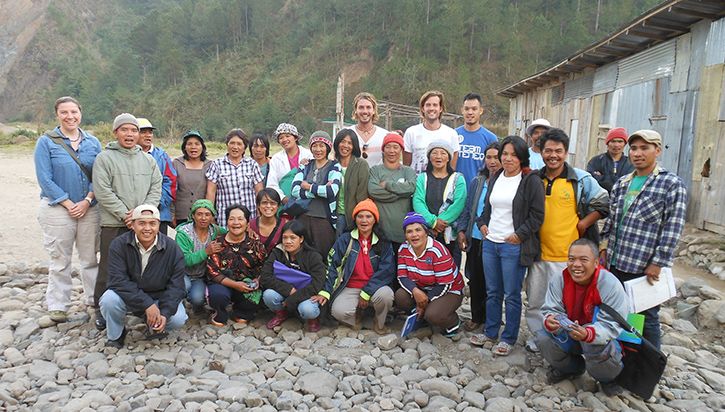All of This is in the Reach of our Hands

Over a hot, humid, rainy week in Nicaragua recently, I spent some time with our partner there, the Council of Protestant Churches of Nicaragua (CEPAD). This was my third visit to see their work, and I’ve written in previous years about the amazing mega-gardens that small farmers have created around their homes.
This time, I wanted to see for myself how CEPAD works to share ideas on the management of these gardens with farmers. So I attended a two-day exchange workshop that brought together about 40 participating men and women from the surrounding area. It was one workshop in a whole series that farmers go through over a three-year period, and this one featured techniques for making natural fertilizers and pesticides using local ingredients.
CEPAD staff didn’t lead the workshop, however. Instead, it was spearheaded by some of the farmers themselves, the designated agricultural ‘promoters’ in each community, who had learned these methods earlier in the year and had already tried them out on their own plots. Over two days, I watched as a small group of seven farmers took turns going up to the front of the church-turned-classroom, to share details about issues such as how often to turn compost, or what ingredients you use in chili pepper pesticide.
Each promoter had their own teaching style: some were animated and jumping around the room, others were more carefully going through things step by step. But what was clear from the beginning was how powerful it was to participants have farmers from their own communities doing the teaching! I watched as both older and younger farmers listened with curious, thoughtful expressions. The group spent time outside each day doing hands-on practice, working as a group to try to replicate what they had learned in the classroom.
Towards the end of the workshop, the CEPAD staff led the group in a verbal evaluation process, trying to bring out from everyone what they had liked, and what they had learned. One of the men sitting in the back stood up, and talked about how he liked learning about the natural fertilizers and pesticides, concluding, ‘I learned that all of this is in the reach of our hands.’
He was right. And after this visit, I think I could equally say that about the farmers’ ability to teach and support each other – all it took was the vision of CEPAD to get things started.
Watch these videos to learn more about their method of sustainable agriculture!
Watch Part 1 below or Click this link: http://bit.ly/167U679
Watch Part 2 below or Click this link: http://bit.ly/1HMkK6F
———————————————
Sara Delaney is a Program Officer with Episcopal Relief & Development.
Images: Top and MIddle 1, Farmers leading a workshop on agriculture. Middle 2 and Last, Local farmers working together during CEPAD workshop.
An Historical Journey



